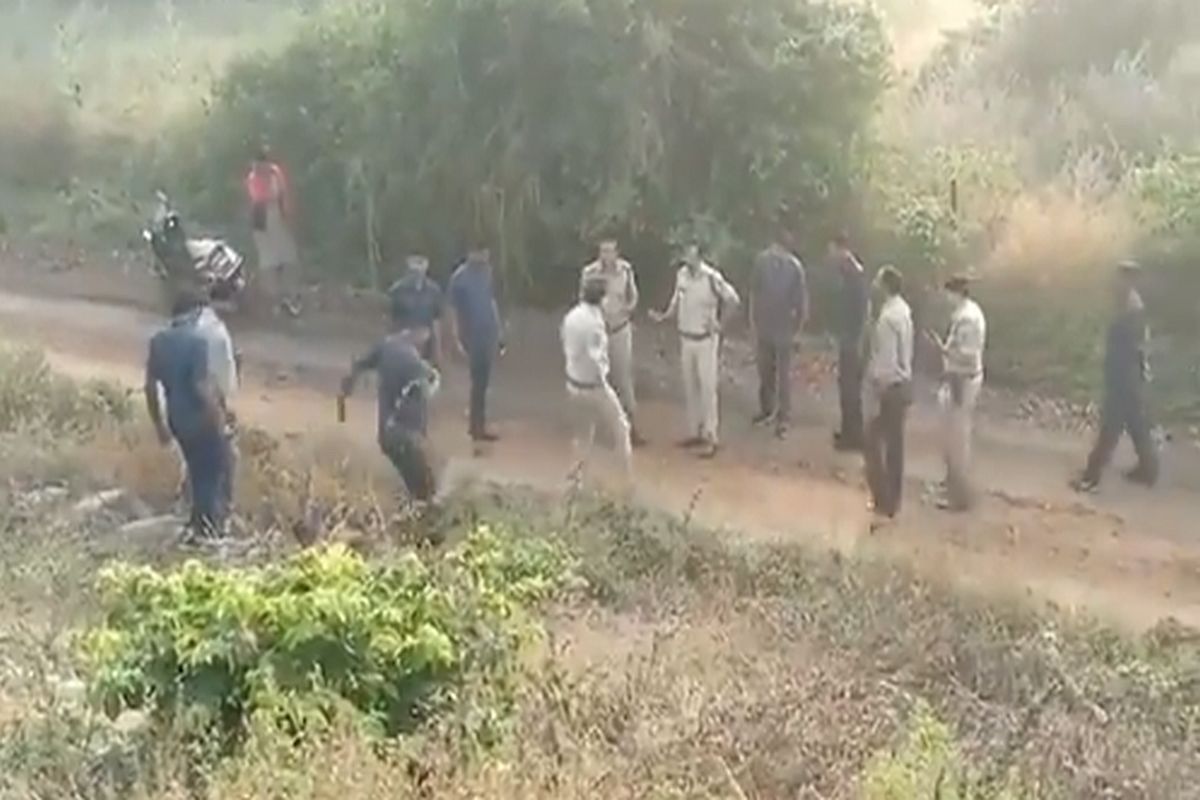BRS woos Muslim with Kavitha card
Rao referred to his daughter K Kavitha’s arrest by the Enforcement Directorate (ED) and Central Bureau of Investigation (CBI) in the Delhi Liquor Scam to convince them that his party was not colluding with the BJP.
Seven years after the brutal Delhi gangrape, the convicted men are still languishing on death row.

The four accused had been taken to Chattanpalli by a police team to reconstruct the scene of crime where they allegedly attacked the cops and tried to run away from the spot. (Photo: Twitter screengrab | @debasish_sinha)
The public exultation and the all-round praise heaped on the Telangana police for shooting dead, in an encounter, the four accused in the rape and murder of a 26-year-old Hyderabad veterinarian is worrying evidence of the lynch-mob mentality that pervades Indian society. It raises serious questions on the efficacy of the criminal justice system in the country as also the police’s trigger-happy tendencies.
Is it mere coincidence that the police chief of Cyberabad, whose force killed the four accused, was also at the helm of Warangal police when three men charged with throwing acid on two girls were shot dead in another encounter along the same lines where the cops had to resort to firing in ‘self-defence’?
Was the police action a bid to deflect public anger about their sheer negligence and apathy that failed to prevent the young veterinarian’s brutal murder? These are all serious questions that only a thorough inquiry will answer. The National Human Rights Commission has already taken suo motu cognizance of reports on the encounter and ordered a probe.
Advertisement
Ironically, the rise in ‘encounter killings’ across the country, particularly in Uttar Pradesh and Telangana, has not resulted in any decrease in crime, especially sexual violence against women. The argument that encounters act as a deterrent, therefore, has no merit. Parliamentarians this week expressed outrage over the sharp increase and horrific nature of rapes across the country, some even calling for lynching and castration of rapists.
When lawmakers themselves believe people should take the law into their hands, it implies a serious breakdown of the concept of due process. In a civilised country, everyone has the right to a free trial and has to be treated as innocent till proven guilty. The kudos received by the Telangana police from local residents, celebrities, even politicians, is a scary sign of mobocracy overriding rule of law.
Public impatience with the criminal justice system is understandable given the undue delay in cases coming to fruition despite the setting up of fast-track courts and the enactment of tough new laws to deal with rape. It is time the apex court stepped in to decide how fast a fast-track court should be, specify time-limits for the appeals process and take steps to ensure dilatory tactics do not stymie the system.
Seven years after the brutal Delhi gangrape, the convicted men are still languishing on death row. Impassioned appeals by her parents to deliver swift justice have gone unheeded. But a tardy system cannot be justification for throwing all democratic principles to the wind. There can be no condoning extra judicial killings as a means to deliver justice.
The police or the public cannot act as judge, jury and executioner. A rapist or a murderer can be brought to justice only within the confines of law, not in the kangaroo courts of public opinion or else India is no better than a banana republic.
Advertisement